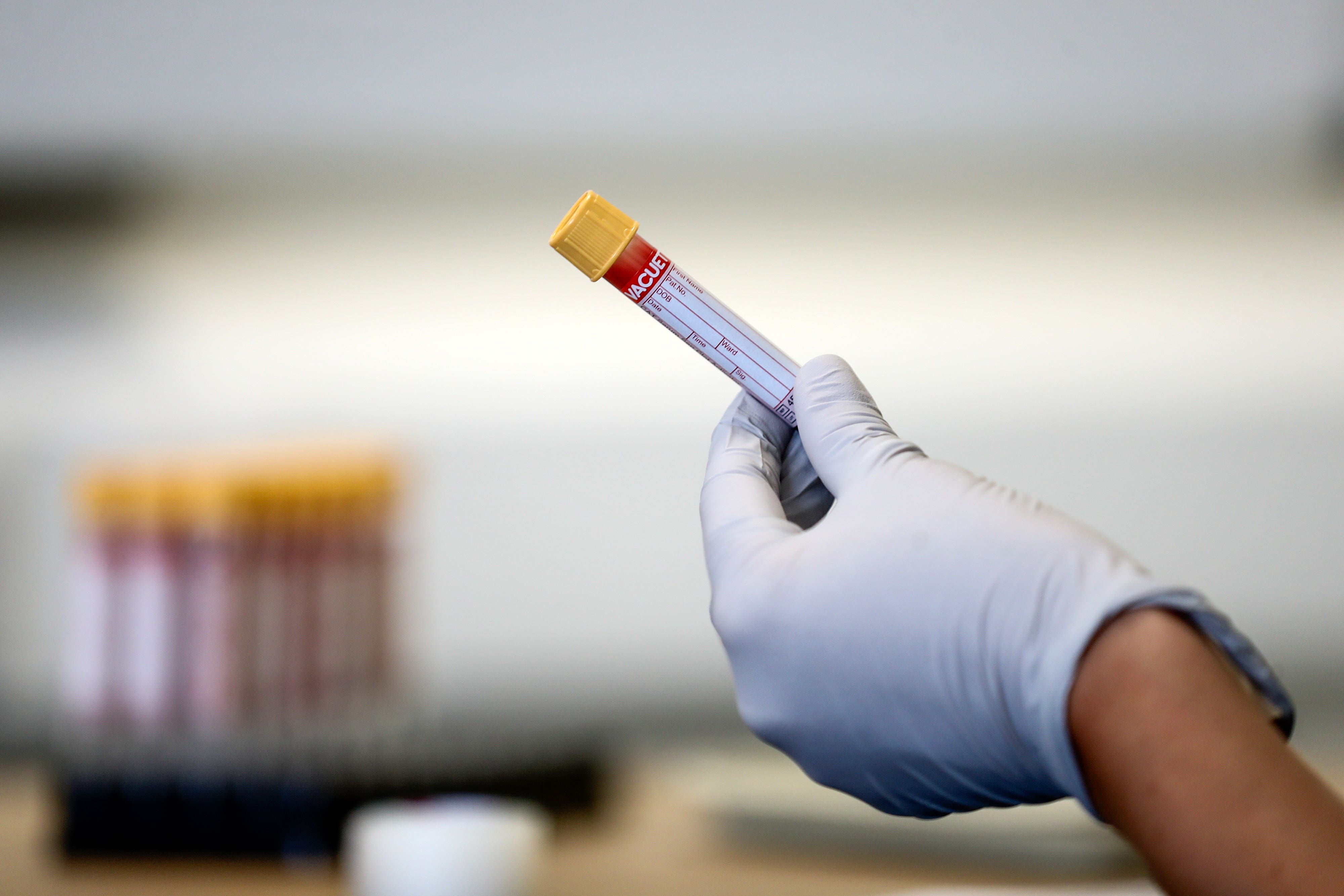Fighting aggressive blood cancer ages and exhausts immune cells, study suggests
Patients with highly exhausted immune cells had been less likely to respond to immunotherapy than other patients, the researchers found.

Your support helps us to tell the story
From reproductive rights to climate change to Big Tech, The Independent is on the ground when the story is developing. Whether it's investigating the financials of Elon Musk's pro-Trump PAC or producing our latest documentary, 'The A Word', which shines a light on the American women fighting for reproductive rights, we know how important it is to parse out the facts from the messaging.
At such a critical moment in US history, we need reporters on the ground. Your donation allows us to keep sending journalists to speak to both sides of the story.
The Independent is trusted by Americans across the entire political spectrum. And unlike many other quality news outlets, we choose not to lock Americans out of our reporting and analysis with paywalls. We believe quality journalism should be available to everyone, paid for by those who can afford it.
Your support makes all the difference.The most aggressive form of blood cancer ages immune cells and drives them to exhaustion, research suggests.
According to the study, the immune cells are so exhausted their ability to fight the disease is significantly impaired.
Scientists at Nottingham Trent University and John Hopkins Kimmel Cancer Centre in America found that as a result, patients with acute myeloid leukaemia (AML) – a type of blood cancer – are often unlikely to respond to treatment.
The cancer progresses quickly, is difficult to treat and has a high relapse rate – just one in five patients survive beyond five years of their diagnosis, researchers say.
The immune system does not work as it should in patients with We have found that immune cells are functionally exhausted and that this associates with poor response to treatment
Scientists looked at tumour samples from almost 2,000 patients with AML along with a wide range of existing data, finding that cancer cells promoted ageing and exhaustion of the immune system, a process known as senescence.
According to the researchers, this process can prevent immune cells from killing more cancer cells and favours leukaemia growth.
Professor Sergio Rutella, director of the John van Geest Cancer Research Centre at Nottingham Trent University, said: “The immune system does not work as it should in patients with acute myeloid leukaemia.
He said: “We have found that immune cells are functionally exhausted and that this associates with poor response to treatment.
“Although many patients have had their lives extended using drugs that act on immune cells, oncologists need to better predict who will respond and why.
“There is an urgent need to move away from a ‘one-size-fits-all’ approach and to develop more rational biology-driven therapies that take a patient’s own genetic make-up into consideration.”
As part of the study, the researchers identified a genetic signature of immune dysfunction and they were able to distinguish between high and low levels of tumour-induced exhaustion.
There is an urgent need to move away from a ‘one-size-fits-all’ approach and to develop more rational biology-driven therapies that take a patient’s own genetic make-up into consideration
The study found that survival rates of people with highly exhausted immune cells and who had undergone chemotherapy was on average more than seven months shorter than that of those with low levels of cell exhaustion.
Additionally, patients with highly exhausted immune cells had been less likely to respond to immunotherapy than other patients, surviving for just over four months while those with low levels of exhaustion survived for more than 15.
The researchers argue that while immunotherapy – the process of using a person’s own immune system to fight cancer – is a standard treatment for many forms of cancer, the method has so far yielded disappointing results for patients with AML.
It is hoped the findings could help better predicti which patients will respond better to treatment, and that it could pave the way to finding novel ways of reinvigorating the immune system and tackling the poor function of the immune cells responding to AML.
It could also lead to the development of more personalised treatments for those patients who are most likely to benefit and can stay in remission, the researchers say.
The study, which also involved Children’s Hospital of Philadelphia, Technische Universitat Dresden in Germany and the Princess Margaret Cancer Centre in Canada, is published in the Journal of Clinical Investigation.